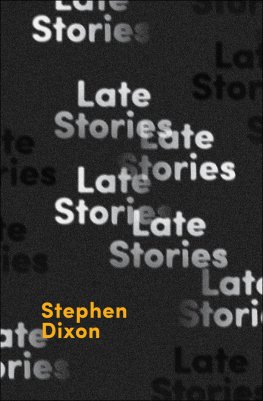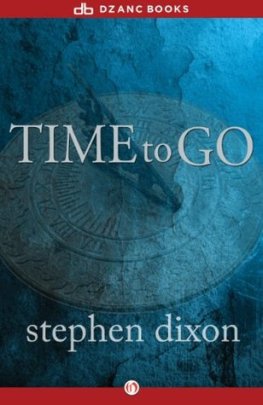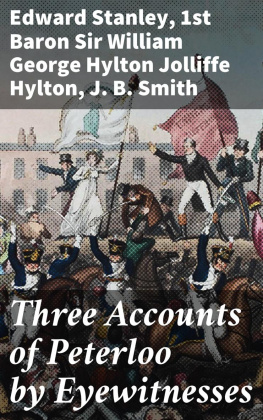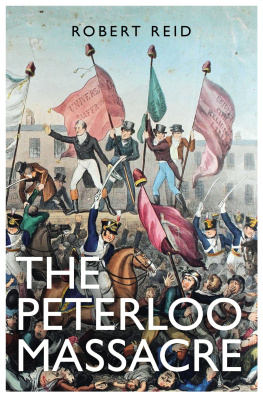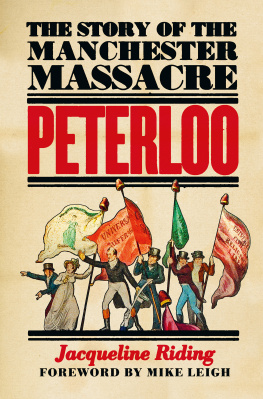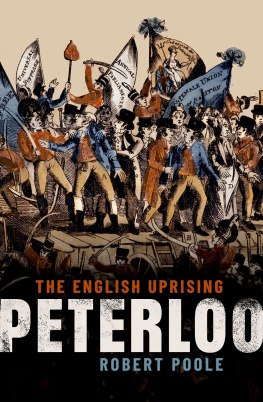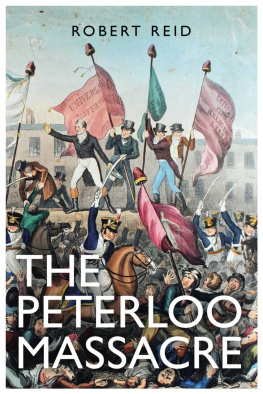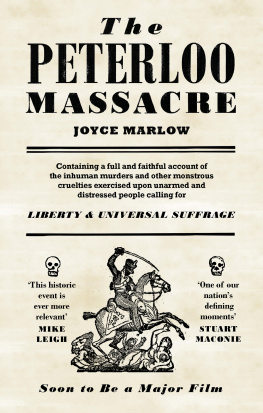Beyond Peterloo
Beyond Peterloo
Elijah Dixon and Manchesters Forgotten Reformers
Robert Hargreaves
Alan Hampson
First published in Great Britain in 2018 by
Pen & Sword History
An imprint of
Pen & Sword Books Ltd
Yorkshire - Philadelphia
Copyright Rob Hargreaves and Alan Hampson, 2018
ISBN 9781526725097
eISBN 9781526725103
Mobi ISBN 9781526725110
The right of Rob Hargreaves and Alan Hampson to be identified as Authors of this work has been asserted by them in accordance with the Copyright, Designs and Patents Act 1988.
A CIP catalogue record for this book is available from the British Library.
All rights reserved. No part of this book may be reproduced or transmitted in any form or by any means, electronic or mechanical including photocopying, recording or by any information storage and retrieval system, without permission from the Publisher in writing.
Pen & Sword Books Ltd incorporates the Imprints of Pen & Sword Books Archaeology, Atlas, Aviation, Battleground, Discovery, Family History, History, Maritime, Military, Naval, Politics, Railways, Select, Transport, True Crime, Fiction, Frontline Books, Leo Cooper, Praetorian Press, Seaforth Publishing, Wharncliffe and White Owl.
For a complete list of Pen & Sword titles please contact
PEN & SWORD BOOKS LIMITED
47 Church Street, Barnsley, South Yorkshire, S70 2AS, England
E-mail:
Website: www.pen-and-sword.co.uk
or
PEN AND SWORD BOOKS
1950 Lawrence Rd, Havertown, PA 19083, USA
E-mail:
Website: www.penandswordbooks.com
To the memory of
Bernard Claude Savage (1913-2011)
whose passion for local history, especially that of New Moston and its founder, was the inspiration for this work.
Acknowledgements
T he authors are grateful for the ready and willing help of the following individuals and organisations (listed alphabetically) and to those retiring and anonymous informants whose quiet shoulder-work is no less appreciated.
Chethams Library, Manchester; Co-operative Archive, Holyoake House, Manchester; Rebecca Coughlan (42 nd Street); Karen Cunningham; Philip Dunne; Failsworth Library; Rod Fairbrother; General Register Office, UK; Hackney Archives, Dalston Square, London; Steven Little; Holmfirth Library; Manchester Central Library Archives, St Peters Square, Manchester; Manchester & Lancashire Family History Society; Julie McCarthy (42nd Street); New Moston Local History Society; Newton Heath Library; Maxine Peake; Jennifer Reid; Salford Local Studies Library; Jackie Settle; Steven Smith; Mr and Mrs J Stephenson, Holmfirth; Swedish Match, Stockholm; Michael Thorpe; David Tomlinson; Stephanie Turner; Stephen P Wilson; Working Class Movement Library, Salford; Deborah Wyles (Holme Valley Civic Society).
The following websites have also provided useful background information or source locations:-
Academia; Ancestry UK; British Newspaper Archive; Family Search (Latter Day Saints); Find My Past; FreeBMD; Gerald Massey; Google Books; Guardian and Observer Archive; Hathi Trust; Historical Directories (Leicester University); JSTOR; Lancashire BMD; Lancashire Online Parish Clerks; London Gazette Archive; Manchester Evening News; Mancuniensis; National Archives (Discovery); National Library of Scotland (Map Archive); Spartacus Educational; The Genealogist; Whaley Bridge Photos; Wikipedia
Foreword
H OW MANY among the residents of Manchesters burgeoning and fashionable Northern Quarter are aware of the poverty and despair that once pervaded their neighbourhood? How many know of Elijah Dixon and his colleagues men like James Wroe, impoverished journalist and bookseller, or James Scholefield, minister of religion, who once lived in the shadow of the mills now converted into luxury apartments? Who now remembers the sacrifices they made for their beliefs, the imprisonment and persecution suffered by them and their families?
The answer, I fear, is very few. The history of this brave band of foot soldiers has been eclipsed by that of dazzling orators, prominent politicians, and heroes of empire. Only determined digging and delving into the small print of history by Rob Hargreaves and Alan Hampson has unearthed this fascinating tale of ordinary men who, for the most part, lived and died in obscurity, and lie in unmarked graves.
Elijah Dixon arrived in Manchester as an impoverished refugee, worked as a little piecer in a cotton mill, and rose to become a successful manufacturer. Yet the authors show that it was not the pursuit of wealth that energised Dixons extraordinary life - rather his passionate commitment to reform and the relief of poverty.
No respecter of rank and mocked by his enemies as a cart orator Dixon pitched fearlessly into agitation for voting rights. By the time of Peterloo he had already been arrested, clapped in irons, and imprisoned without trial. He was among the first supporters of womens rights, co-operation, and internationalism and would not compromise his views to impress Manchesters respectable reformers like Cobden and Bright.
The authors show how Dixon operated at the grass roots if that is not a contradiction in terms to describe the mean streets and crowded slums of nineteenth century Ancoats and New Cross.
Away from the drawing rooms in which The Manchester School of privileged politicians held sway, Dixon was at the hub of a network of street-level demonstrators and pamphleteers, forever organising meetings and protests. They risked arrest daily, and their families bore the brunt of poverty, infant-mortality, and oppression.
And yet their story is not all doom and gloom. The authors also illuminate the human side of their subjects - their family scandals, mistakes and comic confrontations.
We read that once, under pressure at a rowdy meeting, Dixon modestly insisted: Mine has been chiefly shoulder-work. I am a friend of freedom. Not a bad epitaph, and one that any man or woman could be proud of. I recommend this book not only to the young and striving population of the Northern Quarter but to all who have an instinct to better understand our common heritage, and the quiet contributions made to it by our unsung heroes.
Maxine Peake
Introduction
T he long life of Elijah Dixon, beginning on 23 October 1790, coincided with a period during which Britain underwent the most profound change it has ever experienced before or since. The change was heralded by revolutions in technology, social mobility and politics, overwhelming the staid structures of society that had held sway for centuries.


